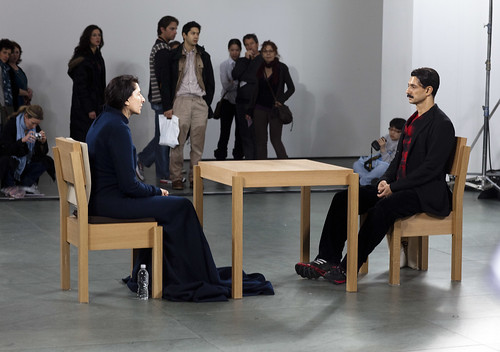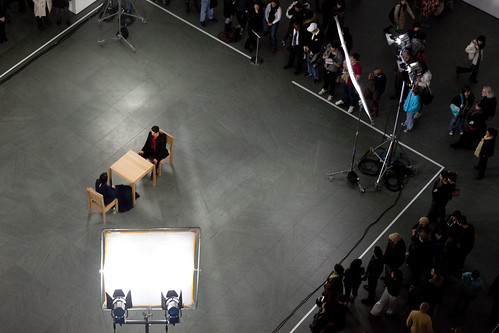I haven’t read the entirety of Elizabeth Green’s (of GothamSchools.org) feature in the NYT Magazine, “Building a Better Teacher“. What I’ve read so far has been great, and this section about teaching elementary math is revealing:
On one tape from that year, Ball started her day by calling on a boy known to the researchers as Sean.
“I was just thinking about six,†Sean began. “I’m just thinking, it can be an odd number, too.†Ball did not shake her head no. Sean went on, speaking faster. “Cause there could be two, four, six, and two — three twos, that’d make six!â€
“Uh-huh,†Ball said.
“And two threes,†Sean said, gaining steam. “It could be an odd and an even number. Both!â€
He looked up at Ball, who was sitting in a chair among the students, wearing a black-and-red jumper and oversize eyeglasses. She continued not to contradict him, and he went on not making sense. Then Ball looked to the class. “Other people’s comments?†she asked calmly.
At this point, the class came to a pause. I was watching the video at the University of Michigan’s school of education, where Ball, who has traded in her grandma glasses for black cat’s-eye frames, is now the dean — and one of the country’s foremost experts on effective teaching. (She is also on the board of the Spencer Foundation, which administers my fellowship.) Her goal in filming her class was to capture and then study, categorize and describe the work of teaching — the knowledge and skills involved in getting a class of 8-year-olds to understand a year’s worth of math. Her somewhat surprising conclusion: Teaching, even teaching third-grade math, is extraordinarily specialized, requiring both intricate skills and complex knowledge about math.
I’ve always wondered how it was possible that some elementary school teachers, with otherwise fine teaching credentials and experience, could belong to the general population of math-phobic people yet still competently teach grade-schoolers math. It’d be like teaching English comprehension by memorization of spelling and common phrases, without being able to explain how or why a sentence is constructed.
But, Green notes, completing college coursework in math isn’t enough to competently explain the difference between even and odd numbers to children. It requires a whole other branch of application of mathematical theory:
Mathematicians need to understand a problem only for themselves; math teachers need both to know the math and to know how 30 different minds might understand (or misunderstand) it. Then they need to take each mind from not getting it to mastery. And they need to do this in 45 minutes or less. This was neither pure content knowledge nor what educators call pedagogical knowledge, a set of facts independent of subject matter, like Lemov’s techniques. It was a different animal altogether. Ball named it Mathematical Knowledge for Teaching, or M.K.T.
…
At the heart of M.K.T., she thought, was an ability to step outside of your own head. “Teaching depends on what other people think,†Ball told me, “not what you think.â€
Read Green’s full piece here.




